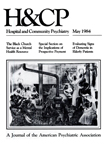Prospective Payment for Psychiatric Hospitalization: Context and Background
Abstract
Retrospective cost-based reimbursement, incorporated into Medicare from the outset, has been the dominant mode of finincing for health and mental hospital services. However, steadily rising health care costs led to the 1983 enactment of a prospective payment system for hospital reimbursement for Medicare, based on diagnosis-related groups. Many psychiatric hospitals and units are currently exempted from the system, but psychiatry and the health care field in general must deal with a number of issues, such as costshifting, quality of care, and adequate recognition of severity of illness, resulting from implementation of tbe system. The authors provide background for the prospective payment system by defining terms, summarizing the history of federal prospective payment legislation, describing three state systems, and discussing generic issues facing the health care community.
Access content
To read the fulltext, please use one of the options below to sign in or purchase access.- Personal login
- Institutional Login
- Sign in via OpenAthens
- Register for access
-
Please login/register if you wish to pair your device and check access availability.
Not a subscriber?
PsychiatryOnline subscription options offer access to the DSM-5 library, books, journals, CME, and patient resources. This all-in-one virtual library provides psychiatrists and mental health professionals with key resources for diagnosis, treatment, research, and professional development.
Need more help? PsychiatryOnline Customer Service may be reached by emailing [email protected] or by calling 800-368-5777 (in the U.S.) or 703-907-7322 (outside the U.S.).



